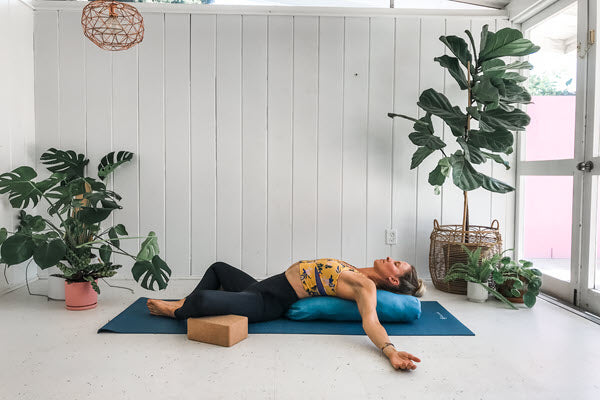Natural Relief for Allergy Symptoms

by: Su Avasthi
Spring blooms may look sweet and innocent, but allergy sufferers know better. Budding trees, blossoming flowers and unfurling leaves can turn a gorgeous spring day into a miserable experience. And indoor allergens like dust mites, animal dander and mold “bug” millions year-round. In fact, allergies are the fifth-leading cause of chronic illness in America. Children especially seem to suffer around allergy season — allergies are the third most common chronic disease among kids under 18.
There are plenty of effective drugs that offer natural allergy relief, and experts urge people who suffer from moderate to severe allergies to talk to their physician. But according to Mary Hardy, M.D., director of integrative medicine at Cedars-Sinai Medical Center in Los Angeles, natural alternatives can go a long way to relieve milder allergy symptoms.
“Using nature-based products can be a very useful way to handle mild allergies,” says Hardy. “There are many types of treatments you can safely try.”
Here are five proven, all-natural methods for natural allergy relief.
1. Outsmart dust mites
When it comes to battling allergens, the bedroom is ground zero, says Colleen Horn, spokesperson for the Asthma and Allergy Foundation of America.
“The bedroom is your first line of defense because it’s so important to get a good night’s sleep,” she says, noting that that’s where we most commonly experience prolonged contact with allergens. “If you’re allergic to dust mites, you should cover all pillows, mattresses, and box springs with an allergy-proof casing. We also recommend washing bedding, pillows and casings in very hot water (130° or higher) at least once a week.”
Experts also recommend tracking your home’s humidity with a humidity monitor. Mites and molds prefer humidity levels over 50 percent. If your air contains too much moisture, use a dehumidifier.
2. Clean smarter
Curtains, carpets and upholstery harbor pollen, so frequent vacuuming — especially with a vacuum equipped with a HEPA filter — can reduce indoor triggers. Many find that even though such machines are more expensive, they are worth the investment because they have micro-fine filters that prevent microscopic allergen particles from being blown back into the air, unlike the porous bags on regular vacuum cleaners. Vacuum carpets and upholstered surfaces once or twice a week.
The same idea applies to dusting household surfaces. Dust more often, and when you do, use a damp cloth or static-charged material that can trap allergens, instead of feather dusters or dry cloths, which just stir the dust back up into the air.
You may also want to try some of the new allergen-deactivating treatment sprays designed to spray on indoor furnishings. Many are made with natural ingredients, and they can be very effective.
3. Clear the air
Air filters can feel like a small miracle when pollen counts start to soar outside. A stand-alone air filter can help allergy and asthma sufferers breathe easier, because they are designed to trap smoke, pollen, dust and other larger particulates in the air. Look for UV air purifiers or HEPA air filters (like the Healthmate or Healthmate Junior), which can capture at least 90 percent of particles as small as 0.3 microns. Those who prefer not to worry about replacing the filters can now find several models with permanent filters.
Another option is replacing furnace filters with HEPA air filters designed to trap bothersome particles as they travel through heating vents.
Products that deactivate pet dander can be applied directly to your pet’s coat or added to pet shampoo. Regardless of whether you use the allergy treatments, wash your pets weekly to keep dander levels low.
You can also try keeping your pets out of the bedroom. If necessary, consider restricting your pet to rooms without carpeting or upholstery because pet dander is sticky and will cling to fabrics and fibers.
4. Stop drying and start flooding
If your wish is clearer sinuses, many health experts and sinusitis sufferers say the neti pot — which looks like Aladdin’s lamp — has the power to grant it.
“Use a neti pot to treat nasal allergies, sinus problems or colds,” says Mayo Clinic asthma and allergy specialist James Li. “In fact, some neti pot enthusiasts say that regular use of a neti pot is more effective for nasal allergy and sinus symptoms than are over-the-counter medications.”
Coming from the Ayurvedic/yoga tradition, this ancient technique of nasal irrigation cleanses the sinus cavity with saline solution. The process flushes out pollen, dust and other environmental irritants and thins out mucus without drugs or side effects. They can help with allergies as well as clear up congestion due to chest colds, coughs and other bacterial or viral infections.
“Allergies are often fought with drying agents like ephedra or antihistamines, which will dry up the mucus and remove the symptoms for a time,” says Ayurvedic medicine expert Dr. John Douillard, author of The 3 Season Diet and founder of the LifeSpa ayurvedic treatment center in Boulder, Colo.
“The cause of mucus,” Douillard explains, “is too much dryness — the mucous membranes get irritated and produce mucus as a natural protective or allergic response. This response is only provoked by these drying therapies that focus only on the removal of the allergic response rather than the cause. The result will be symptomatic relief in the short term, at best. And allergy drugs can create a dependency over time and even provoke a more chronic condition.”
5. Rethink your diet
According to nutritionists, a spicy curry or hot salsa can help clear up congestion. They suggest adding cayenne pepper and ginger to your diet during allergy season. It’s also a good excuse to indulge in Asian or Mexican fare.
They also noted that pollen allergies can be aggravated by specific fruits and veggies, including melon, banana, cucumber, sunflower seeds, chamomile, and any herbal supplements containing Echinacea. “Individuals who are sensitive to ragweed/weed pollens may “cross-react” to compounds such as Echinacea, due to their similar plant families,” says Dr. Clifford Bassett in the Asthma & Allergy Advocate published by the American Academy of Allergy, Asthma and Immunology.
Meanwhile, some people find that cutting back on dairy, wheat or even hoppy beer can also help ease seasonal allergies.
“One way to get a better idea of whether or not a food may be causing your allergic symptoms is to keep a journal of your food intake along with any symptoms that you are experiencing,” says naturopathic physician James Rouse. “Doing this for at least one week can give you and your doctor or nutritionist a better idea of where to begin your treatment.”
Also in Blog

Body Peace & Personal Empowerment

Yoga for Swimmers: Poses for Strength and Mobility

